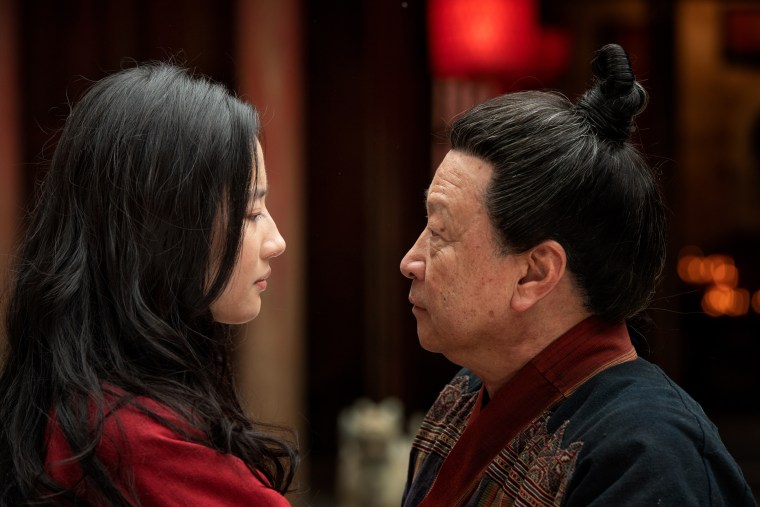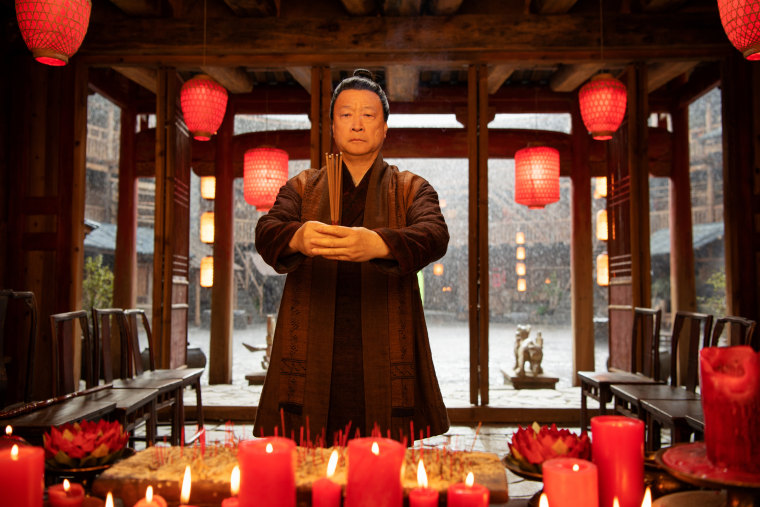In one of the more intimate scenes in Disney’s “Mulan,” patriarch Fa Zhou, portrayed by actor Tzi Ma, warns his daughter of the harsh realities surrounding the way society treats women, while simultaneously acknowledging her brilliance.
“Your ‘qi’ is strong, Mulan,” Ma says in the film, referencing the vital life force often discussed in traditional Chinese medicine. “But qi is for warriors, not daughters. Soon you’ll be a young woman and it is time to hide your gift away to silence its voice. I say this to protect you.”
While the character’s lines reflect a time in ancient China when customs and values may feel distant, the conflicting feelings of a parent — a desire to both shield and to set free — are universal, Ma told NBC Asian America.

“I think what we were trying to do, too, is to adapt an attitude of a dad that understands the value of letting your children take shape in their own time and space,” Ma, who’s cemented a legendary status as Hollywood’s “go-to Asian dad,” explained. “That you do not try to squash their spirits, you do not try to influence them in a way where they are not going to continue to grow to become a contributing member of society.”
The actor, whose character’s stoicism is interrupted by glimpses of his quiet love for his daughter’s feminist spirit, added that similar to many parents today, Fa Zhou attempts to be transparent about how — given the way society sees women — Mulan’s strengths could be met with resistance.
“I think also you get the opportunity to explain to your children, but particularly girls, that given the time, some of these things may be unacceptable to the world and you need to understand that there will be obstacles that you have to overcome beyond what you probably would have because of your gifts, because of your skills,” he said.
Ma has become a sort of expert on fatherhood, given his body of work in the industry. In the past two years alone, he’s starred as an Taiwanese immigrant father in Netflix’s “Tigertail,” as well as the patriarch in the critically acclaimed 2019 drama “The Farewell.” Though parents today can recognize parallel challenges of raising children in his character in Mulan, Fa Zhou, Ma said, isn’t devoid of unique Chinese values. Filial piety, for example, reverberates in the relationship between Fa Zhou and Mulan.
“It's an offering. It's a gift from the Chinese culture, to place such emphasis on filial piety and family. I think, you know, we all have concepts of family because it's not that difficult to understand. But to what extent do we feel that?” he said.
Ma, whose own personality is far cheerier than that of his aloof portrayal, clearly still finds beauty in the fatherhood he’s able to depict on the screens before us. His love of the craft is apparent in the examination of his own character. Though Ma boasts decades in the industry with roles in movies such as the “Rush Hour” franchise of the 90s, as well as television, including “Star Trek: The Next Generation” of the late 80s, and involvement in many groundbreaking films with majority-Asian casts, it wasn’t until recently that the actor was seemingly hurtled into the spotlight, finally acknowledged for his acting chops.
“It’s about damn time!” he joked, before digging into the more sobering realities of how the industry and audiences continue to see Asian actors. “I think, for some unexplained reason, that any films that are really successful that involve a fairly large Asian American cast, the acting is always overlooked.”
Citing 1987’s “The Last Emperor,” which took home numerous awards including the Academy Award for best picture, Ma noted that the film was never recognized for the acting, like many other movies with heavily Asian casts.
“I don't know why that is. I mean, we are not National Geographic. We're not looking at trees. We're looking at people. These films involve people, but it's best picture. Why is the acting contribution left out of recognition? I think it's something that I think we might want to look at a little bit.”
Nancy Wang Yuen, a sociologist who’s examined Asian Americans’ trajectory in Hollywood, explained that during Ma’s time in the industry, two factors underwent significant change leading to further recognition of the actor. Hollywood set forth efforts to cross over into the Chinese film market and more platforms for Asian American stories and storytellers emerged. The collision of those factors allowed for films that Ma has been pivotal in, like “The Farewell,” to thrive.
But Ma, who also witnessed the evolution of an industry that once relegated Asian American characters to strictly two-dimensional, tropes, is a standout because of his commitment to depicting the community responsibly, Yuen said.
“What I admire about him is that he has never compromised on the types of roles he played. He has labored tirelessly to uplift the Asian American community, which meant passing on stereotyped roles,” Yuen added. “I am thrilled that he is finally getting high profile opportunities to showcase his talent.”
